Kevin and Sofia Flannery, co-owners of Vinyl Steakhouse and certified sommeliers, have built a reputation for fine dining with their music-inspired concept featuring over 2,000 vinyl records and expertly curated wine pairings. Vinyl Steakhouse is currently the top-rated steakhouse in Manhattan on Yelp. In February 2025, the couple will also expand their portfolio with VINILE Chophouse, a New Age Italian-inspired restaurant.
What is the core concept behind Vinyl Steakhouse and VINILE Chophouse?
Sofia: With Vinyl Steakhouse we wanted to create a unique dining experience where great food and exceptional wine come together. Our sommelier-driven program makes wine accessible to everyone, and we pair it with delicious steakhouse fare. We've also curated a playlist of classic vinyl records to create a warm and nostalgic ambiance.
Kevin: For the VINILE Chophouse we came up with a brand-new spin on the Italian-American dining experience based around Prime Chophouse cuisine.
How do you two manage running Vinyl Steakhouse together as a couple?
Sofia: Together, we opened Vinyl Steakhouse about two and a half years ago. I’m the beverage director there, and soon, I’ll be taking on that role for our new concept, Miele. Kevin is the main owner-operator and is there every day while I help out where I can, especially since we have a little one now, Donovan, who’s keeping me busy!
Kevin: I’ve been in the restaurant industry for over 20 years. Opening Vinyl was a dream that Sofia and I brought to life together. It is our first restaurant, but we brought a lot of experience with us.
I started working in restaurants when I was 16 and got serious about it in my 20s. At one point, I was tasked with managing a massive wine program in Washington, D.C., with no prior experience. I asked the restaurant owner to pay for my sommelier certification, and they agreed. I earned my first two levels and never looked back. Sofia also became a sommelier as we prepared to launch Vinyl.
Why do you think so many restaurant workers are drawn to the idea of becoming sommeliers? An OysterLink survey shows it’s a dream job for more than 35% of hospitality professionals.
Sofia: For those passionate about wine, it’s fulfilling. You’re constantly learning, tasting, and staying ahead of trends.
For me, it started with Kevin’s passion. Through him, I discovered incredible wines and the stories behind them. When we decided to open Vinyl, I knew I wanted to pursue this path. I got my certification through the Court of Master Sommeliers and learned so much hands-on in the restaurant. Now, I’m mentoring a few team members who want to become sommeliers too!
Kevin: The wine culture in New York is unmatched, it's a different playing field here.
Do you think formal certification is necessary for sommeliers?
Kevin: It’s becoming more important now than when I started. Back then, people didn’t care much about credentials, but today, customers appreciate the expertise. At Vinyl, we emphasize non-pretentious service, offering a highly curated wine list that Sofia and I personally select and price.
Opening a restaurant in 2022 must have been challenging. Why did you go for it?
Kevin: It wasn’t the ideal time, but it was the right time for us. Opening a restaurant had been my dream for years, and I didn’t want to wait any longer. Post-pandemic, there was a lot of talk about New York’s recovery. I’ve always believed this city is one of the greatest in the world, and I wanted to be part of its comeback.
How do you approach hiring for your restaurant?
Kevin: Before bringing someone on board, we always have a discussion to ensure there’s unanimous agreement that they’re the right fit. Our strategy is always to hire for attitude and worry about training later.
We can teach anybody how to make a drink or carry a tray, but warm, welcoming, positive energy is non-negotiable. We'll meet with them two to three times before we hire to see if maybe they had a good day that day to really make sure.
Do you experience the high turnover rates that so many in the restaurant industry talk about?
Sofia: We don't, actually, we're lucky in that sense. We have a culture in our company that is all about associates first. So, we take care of our associates in lots of unique ways. We make sure whether they're in the front of house or in the back of house, we pay them very fairly and adequately.
For our kitchen team, we’ve implemented an industry-leading bonus program where we hand out $100 every 90 days to show appreciation for their commitment. It’s all about creating an environment where people feel valued and supported.
How has the cost of living impacted the wine industry?
Kevin: It varies. Some regions, like Napa Valley, are expensive, with wholesale prices starting at $30 a bottle, which we have to list for $85-$90. Meanwhile, regions like France and Spain offer incredible value. A sommelier can guide you to high-quality wines that fit your budget.
For instance, at Vinyl, we love finding wines that surprise and delight our guests—not necessarily the most expensive bottles, but ones that feel like hidden gems. It's about storytelling too. Guests love hearing about a small vineyard or an interesting production method, which adds a layer of connection and experience.
Are wines as popular with Gen Z? Or are other beverages starting to overshadow them?
Sophia: Wine still has its place, especially in a steakhouse setting like ours, but we’ve noticed that cocktails and non-alcoholic options are becoming more popular. Mocktails, for example, are no longer just a nice-to-have—they’re a must on any beverage list. Guests expect thoughtful, well-crafted non-alcoholic options, whether they’re part of the Cali sober movement or just seeking a lighter, healthier lifestyle.
We’re seeing a lot of focus on aperitifs and digestifs, which are lighter and often lower in alcohol, making them perfect for casual dining. There’s also a lot of experimentation with global flavors—ingredients like yuzu, tamarind, and matcha are showing up more and more.
What do you see as the next big thing in the restaurant industry?
Sophia: The evolution of beverages reflects a broader shift in hospitality toward inclusivity and personalization. When you can offer something for every palate, every preference, and every lifestyle, you create a space where everyone feels welcome and seen. That’s what dining out is really about—creating memorable, shared experiences.
Kevin: Guests want to feel like they’re part of something unique when they walk into your restaurant, whether it’s through the food, the drinks, the music, or even how the staff interacts with them.
There’s also a lot of opportunity in embracing tech—things like personalized menus, better reservation systems, or even AI recommendations based on guest preferences. But no matter how trendy or modern a restaurant gets, if you don’t nail that feeling of being genuinely welcomed, you’re not going to succeed.
Want more articles like this straight to your email? Make sure to create an OysterLink account and join our newsletter.
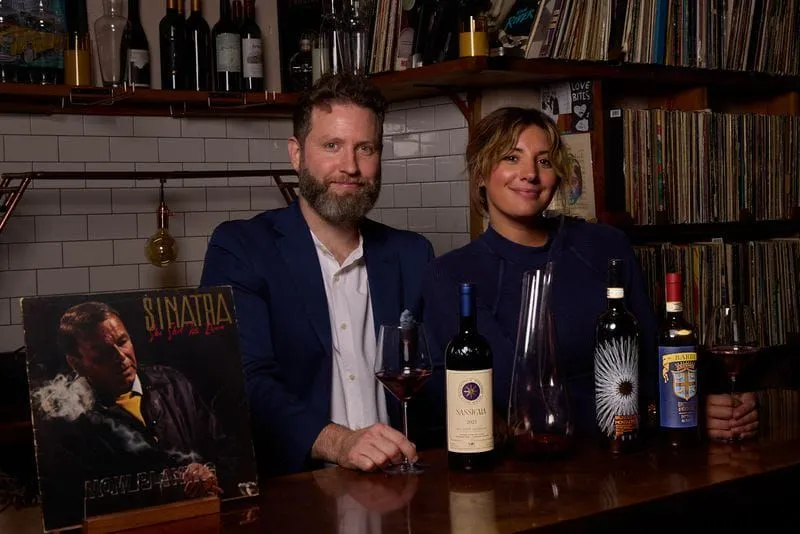

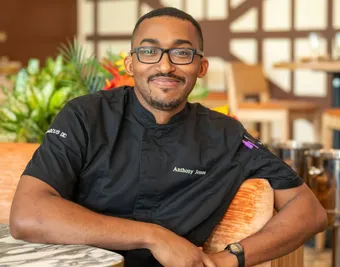
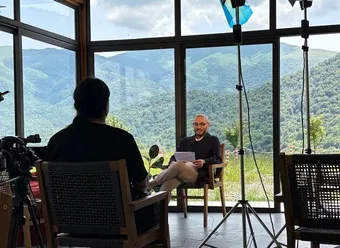
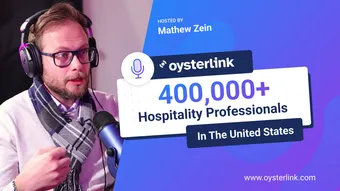
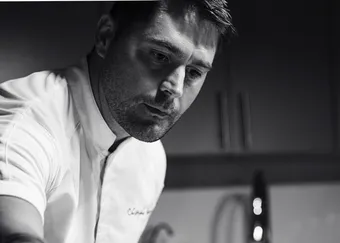
Loading comments...